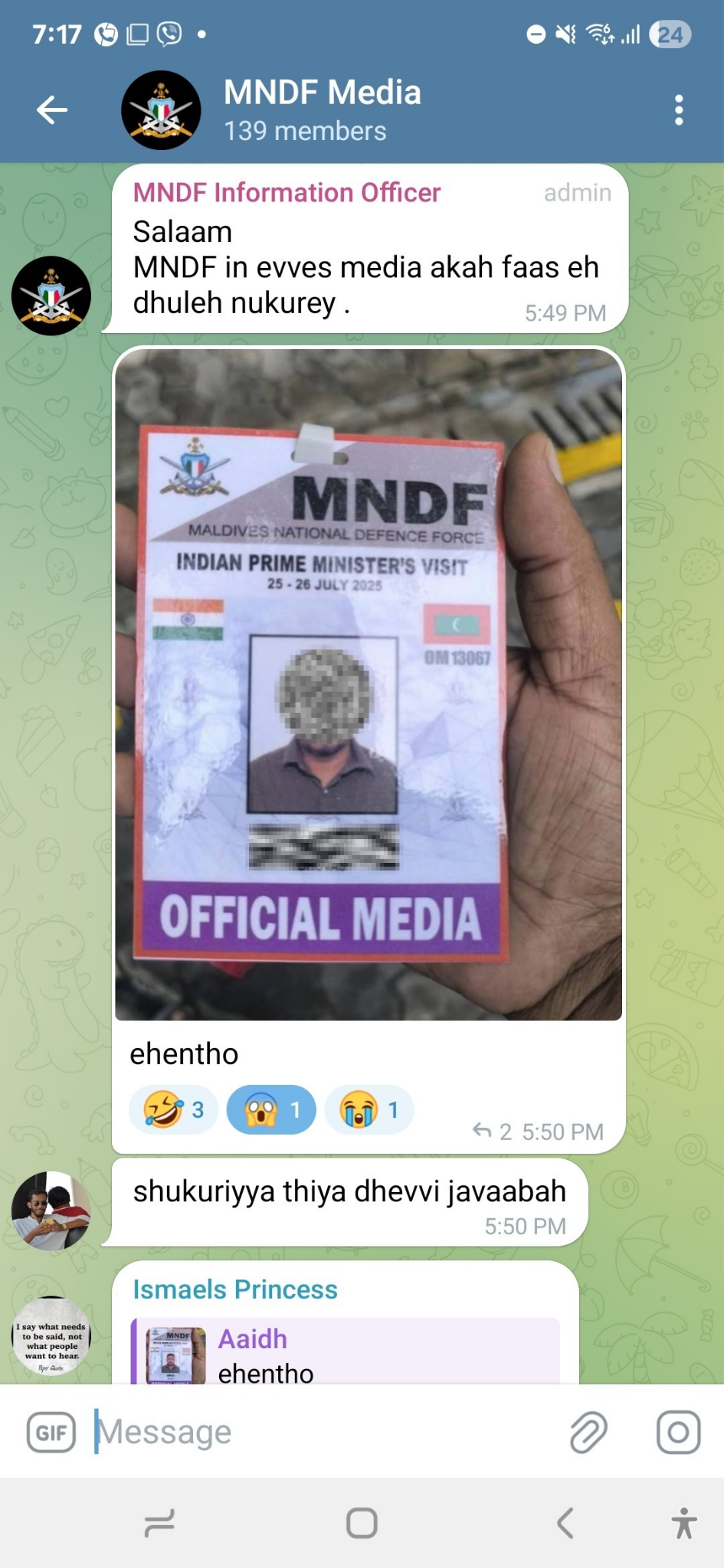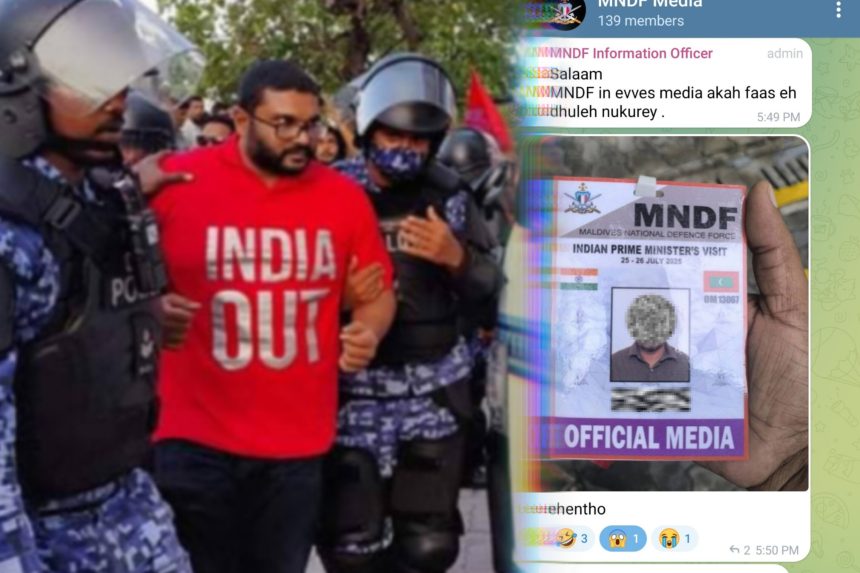As the Maldives celebrates its 60th Independence Day alongside the high-profile state visit of Indian Prime Minister Narendra Modi, mounting controversy surrounds the Maldives National Defence Force (MNDF) and the Ministry of Defence over accusations of selective media access and institutional favoritism — in direct contradiction to President Dr Mohamed Muizzu’s declared policy of openness and media engagement.
While MNDF has denied issuing any special media permits for the state visit, it has now emerged that a select few outlets were granted privileged access to secure events — leaving many others excluded without explanation. Multiple media organizations have reported that their requests for coverage permits went unanswered, while others were quietly granted access, fuelling widespread criticism of bias and secrecy.

The Defence Ministry, led by Ghassan Maumoon — son of former autocrat President Maumoon Abdul Gayoom — has come under intense scrutiny, with critics accusing it of reverting to old patterns of elitism and political favoritism. Journalists attempting to question MNDF about the process have been met with silence.
These actions stand in stark contrast to President Muizzu’s public stance. Just days ago, the President held a live press conference, openly responding to media inquiries on a wide range of issues — reaffirming his administration’s commitment to transparency, accountability, and equal treatment of the press.
“This selective media access undermines everything the President has promised,” said an editor from an excluded news outlet. “It raises serious concerns about whether key institutions are following the leadership’s vision — or acting on their own political interests”.
The situation has also disrupted daily life across Malé, as road closures enforced for the visit caused significant traffic gridlock, halted business operations, and inconvenienced residents. What was expected to be a celebration of independence and diplomacy has instead sparked renewed debate over freedom of the press and institutional integrity.
As the media’s watches closely, calls by journalists are growing for a full explanation — and for those responsible to be held accountable in line with President Muizzu’s pledge for open governance.




